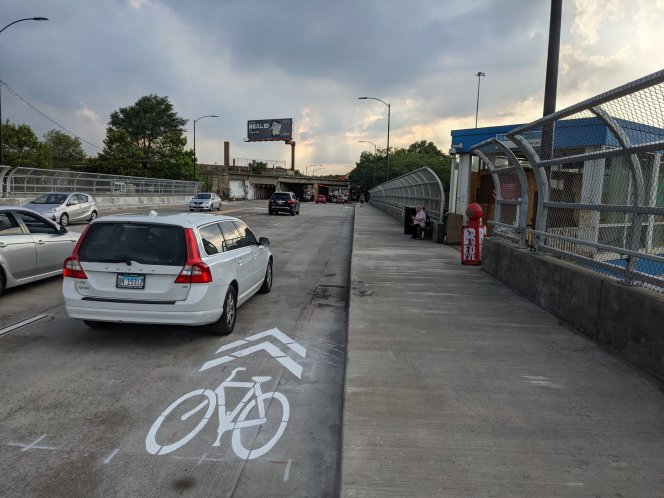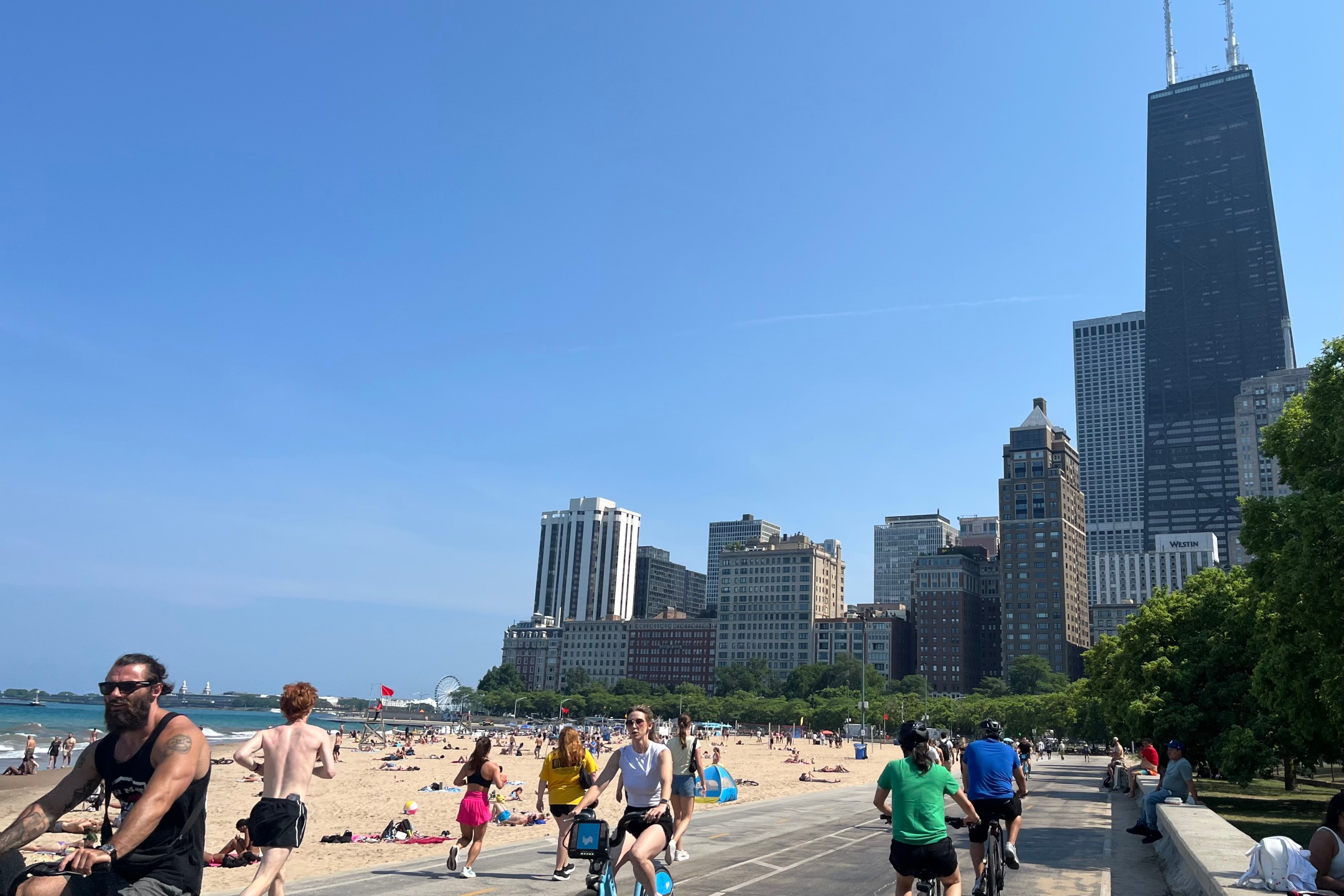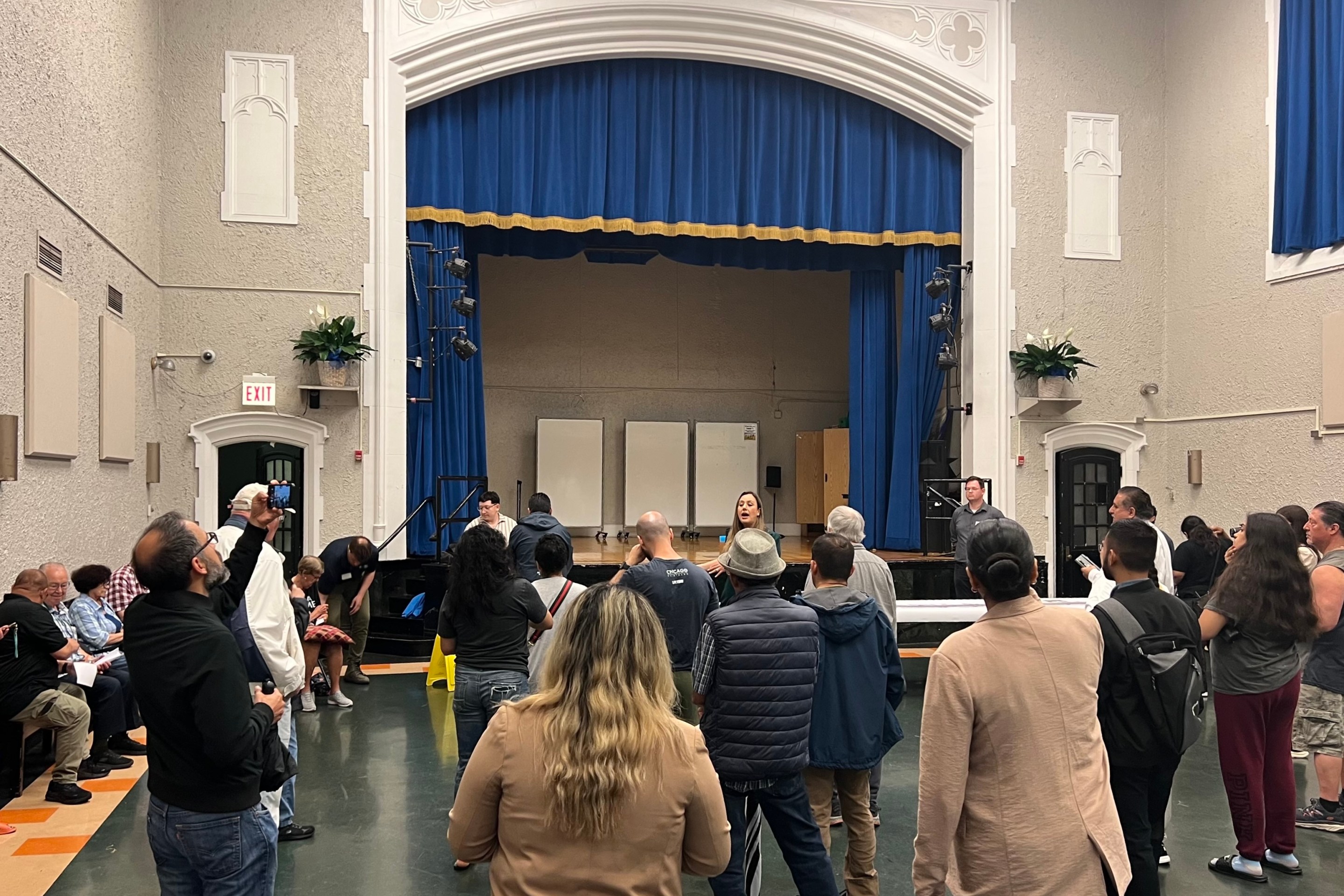A number of advocacy organizations are urging Chicagoland's metropolitan planning organization to help put the brakes on plans to widen local expressways and arterial streets. Ten groups sustainable transportation, environmental, and public health organizations, including the Active Transportation Alliance, the Center for Neighborhood Technology, and the Shared-Use Mobility Center, signed a letter urging the transportation committee of the Chicago Metropolitan Agency for Planning to chart a different course, which ATA read into the record at the committee's meeting last month. CMAP is currently working on a list of regionally significant projects that are eligible for federal funding.
The proposed list of projects would add 122 lane miles to the expressway and 55 miles of new lanes on arterial streets, the advocacy groups stated. They noted that expanding expressways and arterial roads will degrade quality of life in Chicagoland communities, calling plans to widen arterial roads "troubling."
The letter added, “It is well documented how recent spikes in traffic crashes, serious injuries, and fatalities can be attributed to safety issues on arterial streets. These streets already divide communities and are unsafe and uncomfortable for people walking and biking. Widening them only makes these problems worse while encouraging more people to drive and increasing emissions."
As far as expressway widening goes, there's plentiful data showing that when more capacity is added to highways, there's little or no congestion benefit, because the new lanes quickly fill up with more drivers, which just creates more emissions. this phenomenon is known as induced demand.
The letter states that CMAP’s scoring methodology for proposed projects fails to take induced demand into account. Furthermore, it notes, adding more lanes for expressway traffic and arterial traffic would run counter to the goal of CMAP's ON TO 2050 regional plan: creating a modern, multimodal transportation system that reduces greenhouse gas emissions.
The advocacy groups reminded CMAP that guidance from the Federal Highway Administration calls for states to prioritize using federal transportation funds for projects that fix existing infrastructure and support multimodal travel, rather than ones that expand road capacity. They note that repeating past mistakes by expanding roadways would squander the opportunity to transform our streets and create safer and more vibrant communities. I couldn’t agree more.
Read the full letter here.




